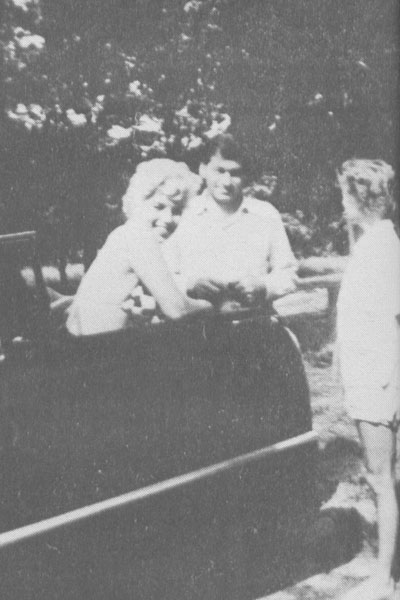
NPR takes a look at Marilyn’s will. Made in 1961, it remains controversial, and it’s rumoured that she had wanted to change it in the weeks before her death.
“Monroe grew up in an orphanage and foster homes. She had no relationship with her father, and her mother spent most of her adult life in mental institutions. In her will, the actress set up a trust to care for her mother until she died; left money to her half-sister, who Monroe didn’t even know existed until she was 12; and made bequests to a poet friend and his wife (she loved poetry, and even wrote some herself) and to others she trusted.
According to Anthony Summers, who wrote a best-selling Monroe biography, the people named in her will got to know her as a real person who loved children, animals and cooking.
‘They took Marilyn under their wings,’ he says. ‘They gave her uncomplicated privacy and companionship.’
Monroe also left a bequest to her psychoanalyst, Marianne Kris.
‘She felt that [Kris] was very helpful and sympathetic,’ says Sarah Churchwell, author of The Many Lives of Marilyn Monroe. ‘She found that [Kris] was starting to help her understand what it was that she was going through.’
After Kris died, her portion of the estate was transferred to the Anna Freud Centre in London, which is dedicated to working with children with mental health problems. Churchwell says Monroe would have approved.
‘That would have made her really happy,’ Churchwell says. ‘She did want to do good, and she wanted to feel as if she had accomplished something.’
But Monroe left the bulk of her estate to her acting coach, Lee Strasberg. He and his wife, Paula, also one of her acting coaches, were like surrogate parents to Monroe. When Strasberg died in 1982, his second wife, Anna, inherited the Monroe estate and eventually hired CMG Worldwide, a company that specializes in managing the estates of dead celebrities, to license Monroe products. That’s when the actress started making big money.
Several years and a variety of lawsuits later, Strasberg sold what remained of the Monroe estate to a new company, Authentic Brands Group, or ABG, for an estimated $20 to $30 million. Strasberg remains a minority partner in the deal.”